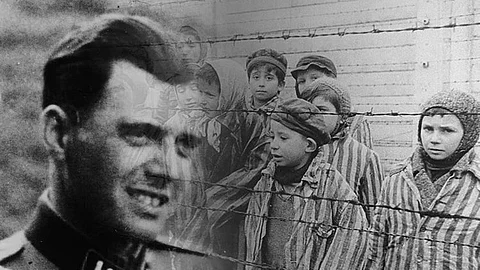

As world leaders gather in Poland to commemorate the eightieth anniversary of the liberation of Auschwitz, new data reveals a troubling rise in Holocaust denialism among young Canadians.
Recent polling data from Leger shows 18% of Canadians aged 18 to 24 believe the Holocaust was exaggerated.
The disturbing results come as Prime Minister Justin Trudeau joins survivors and dignitaries at the Auschwitz-Birkenau Memorial and Museum for the commemoration.
The survey, commissioned by the Association of Canadian Studies, indicates this concerning trend extends beyond the youngest group surveyed.
Among Canadians aged 25 to 34, 15% agreed with the statement about Holocaust exaggeration, nearly doubling from eight percent in a February 2024 survey.
Middle-aged Canadians also showed increased skepticism, with agreement rising from four percent to 11% among those aged 45 to 54 between February 2024 and May 2024.
The May survey included 1,519 respondents.
The Conference on Jewish Material Claims Against Germany reported last year that approximately 245,000 Holocaust survivors remain alive globally, with 5,800 residing in Canada.
The majority of survivors are now over 90 years old.
A separate January 2024 Leger survey of 1,578 Canadians explored how different generations learn about the Holocaust.
Young Canadians under 25 increasingly turned to online sources for information, with 22% naming the internet as their primary source of Holocaust knowledge, which was the highest percentage among all age groups.
While films and documentaries remain the most common source of Holocaust education across all age brackets at 34%, the shift toward online information among younger generations raises questions about the quality and accuracy of those sources.
Despite the alarming rise in Holocaust denial, the January survey showed some good news as 46% of respondents expressed a genuine interest in learning more about the Holocaust.
The younger age groups demonstrated the highest levels of engagement to learn more.
As survivors gather at Auschwitz to mark eight decades since the camp's liberation, where more than one million people, predominantly Jews, were murdered during the Second World War.
Survivors dwindling numbers underscore the urgency of preserving and accurately conveying this history to future generations.
